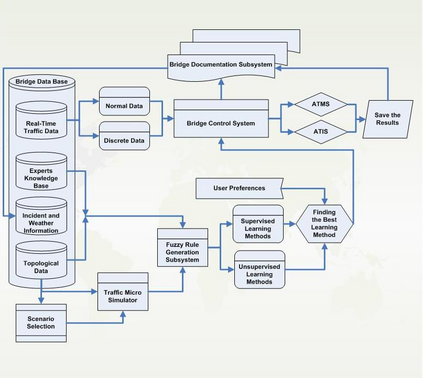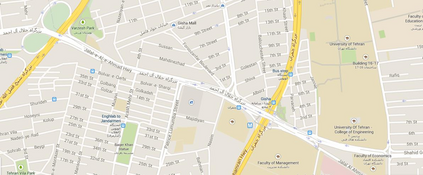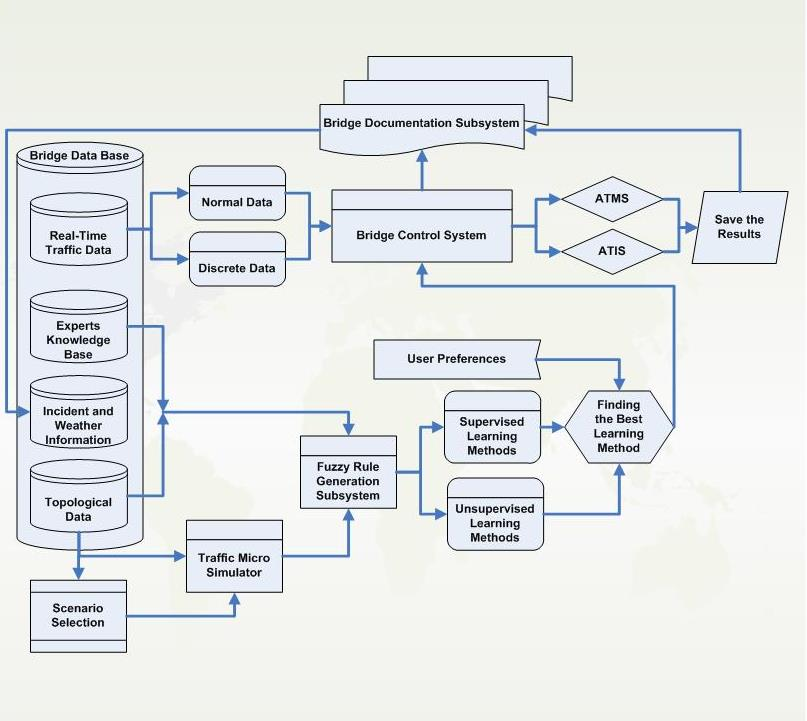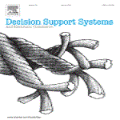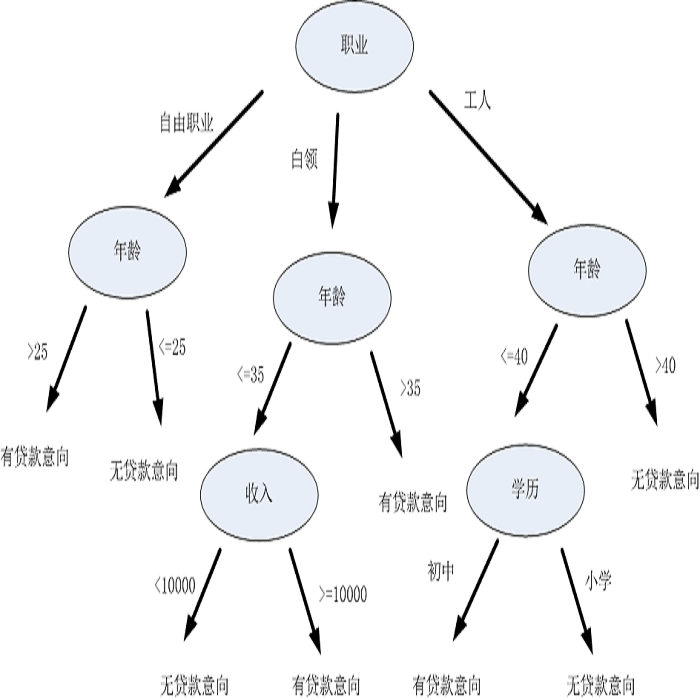
Under dynamic conditions on bridges, we need a real-time management. To this end, this paper presents a rule-based decision support system in which the necessary rules are extracted from simulation results made by Aimsun traffic micro-simulation software. Then, these rules are generalized by the aid of fuzzy rule generation algorithms. Then, they are trained by a set of supervised and the unsupervised learning algorithms to get an ability to make decision in real cases. As a pilot case study, Nasr Bridge in Tehran is simulated in Aimsun and WEKA data mining software is used to execute the learning algorithms. Based on this experiment, the accuracy of the supervised algorithms to generalize the rules is greater than 80%. In addition, CART decision tree and sequential minimal optimization (SMO) provides 100% accuracy for normal data and these algorithms are so reliable for crisis management on bridge. This means that, it is possible to use such machine learning methods to manage bridges in the real-time conditions.
翻译:在桥上动态条件下,我们需要实时管理。 为此,本文件展示了一个基于规则的决策支持系统, 从Aimsun交通微型模拟软件的模拟结果中提取必要的规则。 然后,这些规则通过模糊规则生成算法的辅助而普遍化。 然后,这些规则由一组受监管和不受监管的学习算法来培训,以获得在真实情况下作出决定的能力。 在试点案例研究中,在Aimsun模拟德黑兰的Nasr Bridge, 使用WEKA数据挖掘软件来实施学习算法。 根据这项实验, 被监管的普及规则的算法的准确性超过80%。 此外, CART决定树和顺序最优化(SMO)为正常数据提供了100%的准确性, 这些算法对于桥上的危机管理非常可靠。 这意味着,有可能使用这种机器学习方法来管理实时情况下的桥梁。
